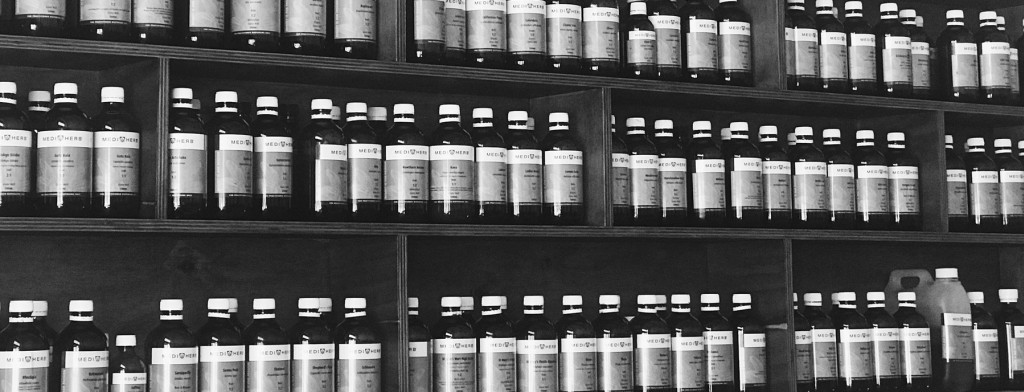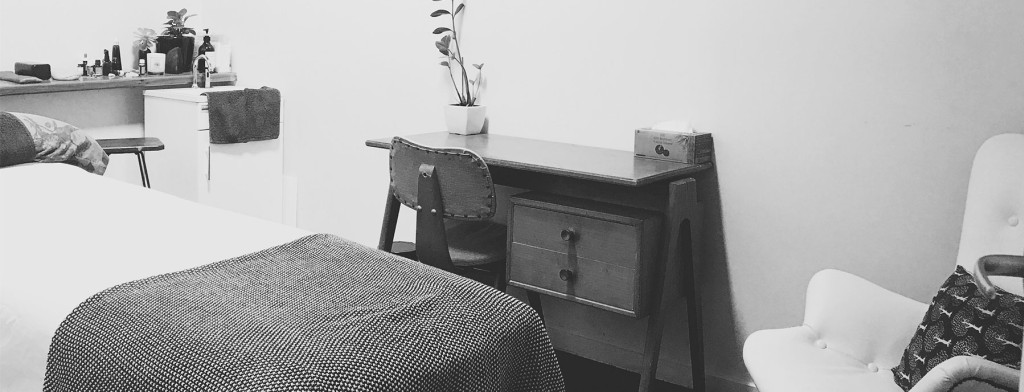{ Traditional Chinese Medicine & Acupuncture }
Foundation of Traditional Chinese Medicine
Acupuncture, Chinese Herbal Medicine, Food Cures and Tui Na are used in Traditional Chinese Medicine; an ancient medical system that takes a deep understanding of the laws and patterns of nature and applies them to the human body. It is a complete medical system that has been practised for thousands of years.
The true foundation of Chinese Medicine is "Qi", which loosely translates as vital force or life energy. Qi is considered to be the force that animates and informs all things. In the human body Qi flows through the meridians (energy pathways) creating a continuous circuit linking internal organs and connecting the interior with the exterior. Disease occurs when there is a deficiency or excess of Qi in internal organs and disruption to this flow in the meridians.
Healing with TCM & Acupuncture
By stimulating key points on the body with needles (acupuncture), Chinese therapeutic massage (Tui Na), Chinese herbal medicine and cupping (suction) internal organs are tonified, excesses are dispersed, blockages are removed and imbalances corrected.
At the heart of Chinese Medicine is the tenet that the root cause of illness, not the symptoms, must be treated. Therefore it's a holistic approach as it views every aspect of the person - mind, body, spirit and emotions - as part of one complete circle.
What Conditions can TCM help?
Traditional Chinese Medicine is great for treating or assisting with the healing of all conditions: physical, emotional and energetic. If you suffer from digestive problems, skin conditions, cardiovascular or immune disorders you may benefit from Chinese Herbal Medicine, Chinese Food Cures and Acupuncture.
Emotional health factors such as stress, fatigue and anxiety affect many people in our bustling society. Tui Na, Acupuncture and Food Cures, being natural remedies, are often preferable to prescription pharmaceuticals for these conditions.
Acupuncture is also a very popular and effective treatment, in both women and men, for issues surrounding fertility & conception.
Why should I book for Acupuncture/TCM at BHH?
Our Chinese Herbalist and Acupuncture practitioner is Simon, a Doctor of Traditional Chinese Medicine. He is successful in treating many conditions, and even after successfully treating the conditions of patients, they often continue to see him for Acupuncture, Massage and Chinese Herbal Medicine to keep in good health. After all, prevention is the best medicine.
Our clinic, conveniently located in Brunswick, has a friendly and relaxing atmosphere so you will feel welcome and at ease as soon as you walk in the door.
Make your booking online, or call us on 03 9388 2422.
Acupuncture FAQ’s
A: Short Answer, No.
Dry Needling is used for releasing tightly contracted muscles, whereas Acupuncture performed by a Doctor of Traditional Chinese Medicine is used to adjust and regulate Energy Flow (Qi) throughout the body.
Dry Needling is a type of Acupuncture, often used by Myotherapists and Physiotherapists to release tightly contracted muscles by applying a dry needle to “trigger points” on/in the muscles. It can be quite uncomfortable. As it is a muscle relaxation technique Practitioners in the above fields can do as little as 2 weeks’ training to earn certification in Dry Needling.
Acupuncture in an East Asian Medicine context uses a much gentler technique to adjust the flow of Qi (vital energy) and Blood with the aim of reducing pain, calming nerves and moods, regulating organ function, and restoring balance. Earning a Qualification in Acupuncture in Australia requires satisfactorily completing a 3-5 year degree, with between 500 and 1000 hours of supervised clinical practice in a clinical setting.
A: Although Australian health laws do not allow Acupuncturists to advertise themselves as specialists, there are many who do specialize in the field of gynaecology, fertility, and obstetrics, including pregnancy. Experienced practitioners know there are certain points to be avoided, especially during the earlier stages of pregnancy, but those same points are very useful for bringing on labour when the mother is trying to deliver at a certain stage, or attempting to avoid induction. Additionally, acupuncturists frequently treat pregnancy-related conditions such morning sickness, diabetes, high blood pressure, back, groin and pelvic pain, and sleep disturbance.
A: Unfortunately, no, though lobbying is taking place behind the scenes towards that end, and citizens lobbying their political representatives is always a good way to send a message (hint).
Patients with private health insurance which includes “Extras” are usually able to claim an on-the-spot rebate, often significantly reducing the cost of their treatment.
A: Patients with all types of lower back pain make up a large proportion of an Acupuncturist’s client base, meaning we have had plenty of practice at helping people with this often crippling disorder. More often than not, we are able to help the client obtain significant reduction in pain and relief from symptoms, though it does depend on factors such as whether there is structural damage or change to the spine, and whether aggravating factors can be avoided. As stated elsewhere, back pain is one of the most researched conditions for acupuncture, and the science falls on the side of endorsement (with the usual qualifiers)
A: Often, yes.
Similar to the question about back pain above, there are some limiting factors, but many points on the body have been found to be helpful for nerve-related pain (and numbness). Often, the quicker the patient seeks treatment for this disorder, the easier it is to resolve.
A: Yes. Historically, acupuncture was absolutely evidence-based.
Villages in ancient China had doctors whose job it was to treat the villagers and keep them healthy enough to perform their vital roles in the community. If the doctors couldn’t satisfy this requirement, they were out of a job (and likely, a home). In the modern sense of “evidence-based”, a search of a single online research hub (PubMed) shows 47755 responses for clinical Acupuncture research, so there is no shortage of studies investigating this intervention. Not all of them are ringing endorsements, however systematic reviews have found that conditions such as lower back pain, chemotherapy-induced nausea, and constipation all clearly benefit from Acupuncture. Also, an argument can be made that acupuncture is not a good fit for a testing system devised for drug therapies (double-blind randomised control trials), as it is very difficult convince a participant that they have had a needle inserted in them when this is not the case, and vice versa, and even a needle inserted in a random area of the body (ie, not the point being tested) has been demonstrated to have an unintended (and unexplainable) positive effect.
A: This very loaded question is tricky to answer to anyone’s satisfaction. Acupuncture originated with its own medical philosophy, which does not always correspond to Western medical science. Nevertheless, modern clinical testing has shown that acupuncture produces changes in blood flow, nerve function, stem cell activity, muscle contractivity, and other areas. The fact that science is as yet unable to explain the mechanism for these changes, does not negate the fact that they are real, and regularly relied upon by millions of people around the world. Acupuncture is not an especially lucrative career, so the idea that some kind of large-scale hoax is being perpetrated upon a gullible public (as implied by this question) is ludicrous, and insulting to those who have felt its benefits.

{ Our therapies }
{ Find us }
(corner Ballarat Street)
Brunswick VIC 3056
Our herbal dispensary and over the counter naturopathic advice and product sales are available:
Saturday: 9am - 3pm
Monday: 10am -1pm
Friday: 1pm - 4pm
All other therapies are by appointment. Please book online, email us, or phone 03 9388 2422.
